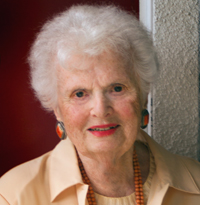By Natasha Josefowitz, ACSW, Ph.D.

LA JOLLA, California — My friend Joanne forwarded me an email from her granddaughter, Elizabeth Keegan Tapia. She thought the questions were interesting, provocative, and made her reminisce as well as reexamine some memories of past events. I, too, found the questions comprehensive and worth sharing as a possible vehicle for interviewing family members. The following are some modified excerpts from Elizabeth’s questionnaire.
1) What was life like for you growing up? What were your favorite activities? What one or two memories stand out for you?
2) Describe yourself in high school. What were your interests? What are you proud of? Embarrassed about?
3) What was it like leaving home for the first time? Did you know what you wanted to do with your life? What were your first jobs like? What was it like for young women at that time?
5) What was it like having babies? Share a memory or two of being a new mom. Tell me a funny story about your kids. What qualities did your kids inherit from you or your husband? How did your role as a mom and as a woman change over time?
6) What was it like when your kids grew up and left home? What changed in your day-to-day life? How did you feel about it?
7) What roles have your friends played in your life over the years?
8) As you look back over your life, what are you most proud of? How did you juggle family and career?
We are living in an interesting time that warrants examination and recollections. The descendants reading these questions will be living many years past our current COVID-19 pandemic, which will seem to them like the black plague sounds to us. While Elizabeth is still writing to her grandmother at a time when we are still bound by many rules such as social distancing and mask wearing, her grandchildren will only be able to read about it. I would suggest adding some questions about life during the pandemic as well as the coping mechanisms, anxieties, and the effects of isolation on mental and physical health.
Answering these questions would trigger memories of events maybe not usually thought about. Responding in writing is time-consuming, but with our capacity for dictation to a computer, the written record will be shared for generations to come; the other option is to have a grandchild ask the questions and record the answers. In-person interviewing allows an expansion of ideas and promotes new questions triggered in the telling.
Grown children delight in stories of their babyhood, their own childhood and adolescence; stories they vaguely remember or that may be new to them. It gives them a window into their growing up, which they may recognize in their own children. This helps in discussions of parental styles, then and now.
Some adult children are interested in genealogy, so it might be worthwhile to find some still-living relatives who might have recollections of long-lost cousins, or possibly a famous ancestor. The often disregarded worth of genealogy is the medical record; knowing who died of what, and at what age, might help to avoid genetic illnesses that were prevalent in some family members.
Readers take the opportunity to ask questions of still-living parents, grandparents, aunts, uncles, and family friends. Have a list of questions ready and record the answers. I would have loved to know about my grandmother’s life in Russia. She was an opera singer. I knew her, but it had never occurred to me to ask her about her past; now I wish I had. I have kept all the Mother’s Day and birthday cards and letters my children sent me through the years. From their kindergarten drawings to the letters from summer camp, I brought everything with me when my daughter and I visited my son in London. We spent a wonderful day together looking through all the memorabilia. My children loved it! We laughed a lot and cried a little.
Dear readers, keep your kids’ and grandkids’ messages, cards, letters — whatever you have. Of course, now in the digital age, most of the correspondence is deleted….What a loss! When there is a special event worth remembering for future sharing, save it as it might provide wonderful recollections.
© Natasha Josefowitz. This article appeared initially in the La Jolla Village News. You may comment to natasha.josefowitz@sdjewishworld.com